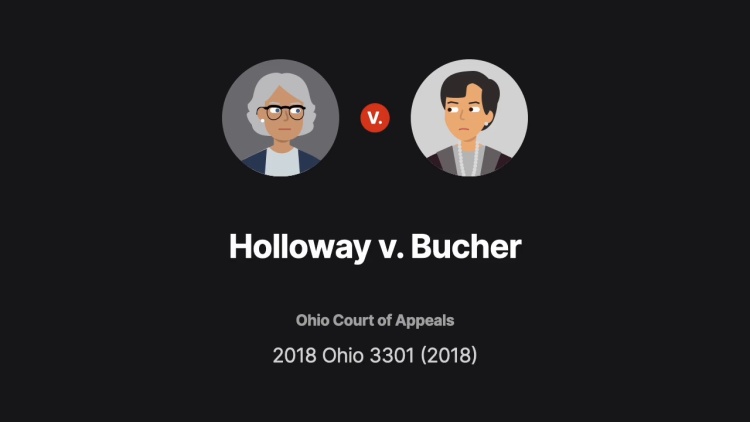Holloway v. Bucher
Ohio Court of Appeals
2018 Ohio 3301 (2018)

- Written by Mary Phelan D'Isa, JD
Facts
In January 2004, Janet Holloway (plaintiff) orally agreed to loan $163,800 to her daughter, Suzanne Bucher (defendant). Bucher was to make $300 monthly payments until she sold her home, and $500 monthly payments thereafter. Bucher made the $300 payments, and when she sold her home in August 2004, Bucher paid Holloway a lump sum of $63,025.25. Bucher then made $500 monthly payments until February 2013, when Bucher lost her job and Holloway allowed Bucher to stop making payments. Holloway later demanded that Bucher make payments when Holloway decided that Bucher was not making a good enough effort to find work, but Bucher failed to resume monthly payments. Holloway sued Bucher for the balance of the loan. Bucher moved for summary judgment, contending that the oral agreement was unenforceable under the statute of frauds because performance of the contract could not be completed within a year from the date of the contract’s formation. Holloway contended that the parties understood that the monthly payments were merely minimum payments and that the contract could be performed within one year, as evidenced by Holloway’s acceptance of the $63,025.25 lump-sum payment and Holloway’s testimony that she would have accepted an early payoff. Holloway also argued that even if the statute of frauds applied, given the parties’ partial performance, its application was excepted. The trial court found that because the agreement could not be completed within a year, it was unenforceable, and the court granted Bucher’s summary-judgment motion. Holloway appealed.
Rule of Law
Issue
Holding and Reasoning (Jensen, J.)
What to do next…
Here's why 911,000 law students have relied on our case briefs:
- Written by law professors and practitioners, not other law students. 47,100 briefs, keyed to 997 casebooks. Top-notch customer support.
- The right amount of information, includes the facts, issues, rule of law, holding and reasoning, and any concurrences and dissents.
- Access in your classes, works on your mobile and tablet. Massive library of related video lessons and high quality multiple-choice questions.
- Easy to use, uniform format for every case brief. Written in plain English, not in legalese. Our briefs summarize and simplify; they don’t just repeat the court’s language.





